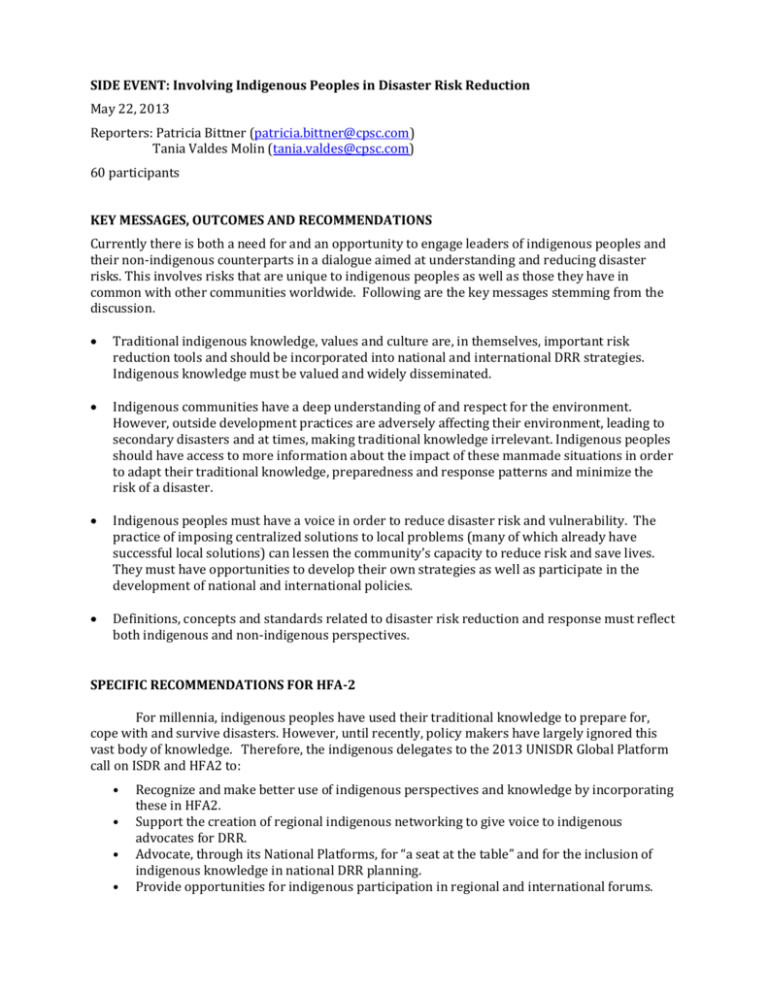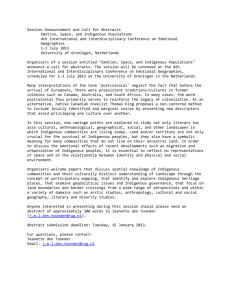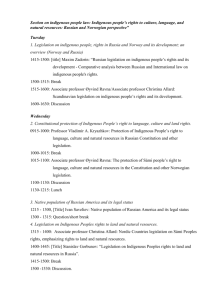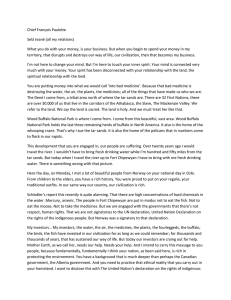One-page short summary of the Side Event
advertisement

SIDE EVENT: Involving Indigenous Peoples in Disaster Risk Reduction May 22, 2013 Reporters: Patricia Bittner (patricia.bittner@cpsc.com) Tania Valdes Molin (tania.valdes@cpsc.com) 60 participants KEY MESSAGES, OUTCOMES AND RECOMMENDATIONS Currently there is both a need for and an opportunity to engage leaders of indigenous peoples and their non-indigenous counterparts in a dialogue aimed at understanding and reducing disaster risks. This involves risks that are unique to indigenous peoples as well as those they have in common with other communities worldwide. Following are the key messages stemming from the discussion. Traditional indigenous knowledge, values and culture are, in themselves, important risk reduction tools and should be incorporated into national and international DRR strategies. Indigenous knowledge must be valued and widely disseminated. Indigenous communities have a deep understanding of and respect for the environment. However, outside development practices are adversely affecting their environment, leading to secondary disasters and at times, making traditional knowledge irrelevant. Indigenous peoples should have access to more information about the impact of these manmade situations in order to adapt their traditional knowledge, preparedness and response patterns and minimize the risk of a disaster. Indigenous peoples must have a voice in order to reduce disaster risk and vulnerability. The practice of imposing centralized solutions to local problems (many of which already have successful local solutions) can lessen the community’s capacity to reduce risk and save lives. They must have opportunities to develop their own strategies as well as participate in the development of national and international policies. Definitions, concepts and standards related to disaster risk reduction and response must reflect both indigenous and non-indigenous perspectives. SPECIFIC RECOMMENDATIONS FOR HFA-2 For millennia, indigenous peoples have used their traditional knowledge to prepare for, cope with and survive disasters. However, until recently, policy makers have largely ignored this vast body of knowledge. Therefore, the indigenous delegates to the 2013 UNISDR Global Platform call on ISDR and HFA2 to: • • • • Recognize and make better use of indigenous perspectives and knowledge by incorporating these in HFA2. Support the creation of regional indigenous networking to give voice to indigenous advocates for DRR. Advocate, through its National Platforms, for “a seat at the table” and for the inclusion of indigenous knowledge in national DRR planning. Provide opportunities for indigenous participation in regional and international forums.







